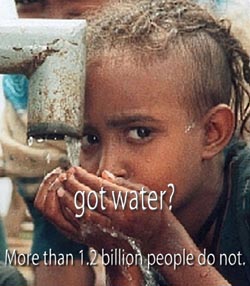New template
The treatment facilities at Yanshan consist of four wastewater treatment
plants with a total daily capacity of 129,000 cubic metres and two recycling
units that will re-inject water into the manufacturing cycle with a total daily
capacity of 40,000 cubic metres. They will treat water from the refinery and the
six petrochemical units that make up the Yanshan industrial complex, as well as
the domestic wastewater from the site.
 According to the agreement, Sinopec Yanshan provides the land and the
facilities while Veolia Water invests money equivalent to the value of the land
and the facilities, for further technology upgrades and operation.
According to the agreement, Sinopec Yanshan provides the land and the
facilities while Veolia Water invests money equivalent to the value of the land
and the facilities, for further technology upgrades and operation.
"A common problem with most State-owned enterprises is that we are big, but
not strong, because we cover too many businesses. In order to become a strong
competitor in the international market, we must concentrate on the core
business," says Xu Chuanhai, director of Sinopec Yanshan's environmental
protection department.
Sinopec Yanshan's wastewater treatment facilities used to be operated by a
department within the company. The department, where more than 400 people
worked, collected fees for wastewater treatment from each different
petrochemical unit within the company.
"To the general manager of Sinopec Yanshan, it was like taking money out of
his left pocket and putting in the right," Xu says.
The new joint venture with Veolia Water is an independent company, however.
This means that petrochemical units will be forced to reduce their wastewater
discharge if they want to pay the joint venture less money for wastewater
treatment, Xu says.
And the joint venture, in order to increase its income, will try to improve
its efficiency by using modern technology and management.
The joint venture could also earn more money by using the extra capacity of
wastewater treatment facilities at the Yanshan industrial complex, Xu says.
"It could serve small clients around that area by using that extra capacity.
In this way, idle equipment won't be wasted," Xu says.
Veolia Water estimates that the joint venture will be able to generate annual
revenues of 580 million euros (US$691 million).
Related story: Take the plunge